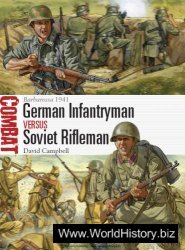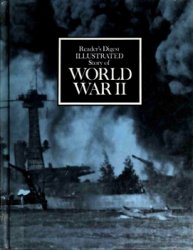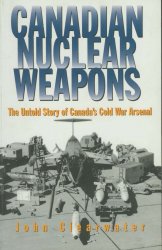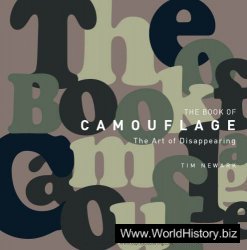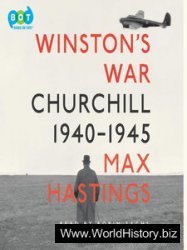During the course of the Spanish Civil War which broke out on 18 July 1936, Hitler was to consolidate his position dramatically, seeing France weakened, and being further convinced of the cowardice of both Paris and London. The Spanish war was essentially Spanish in origin. In the first two years of the Second Republic in Spain, between 1931 and 1933, a coalition of moderate socialists and middle-class liberal republicans had attempted to carry through a programme of social reform. The success of right-wing resistance impelled the socialists to fight the November 1933 elections alone in the hope of establishing an exclusively socialist government. In a system which favoured coalitions, this handed victory to a rightist coalition. Throughout 1934, that coalition overturned the minimal social and religious reforms of 1931-33. Fearful that the right planned to establish a fascist state, socialists, anarchists, and communists rose up in the mining districts of Asturias in October 1934 only to be defeated by the army under the supervision of General Francisco Franco. It was the first battle of the Civil War. The right took its revenge in a savage repression which impelled the left to reunite in the Popular Front. In the
February 1936 elections, the Popular Front won a narrow victory and immediately began to revive the reforming programme of 1931.
Alarmed by the confidence of the left, the right prepared for war. A military conspiracy was led by General Emilio Mola. The growing fascist party, Falange Espanola, used terror squads to create the disorder to justify the imposition of an authoritarian regime. The left’s response contributed to the spiral of violence. The assassination on 13 July of the monarchist leader, Jose Calvo Sotelo, provided a convenient justification for the conspirators. The plotters had not foreseen a long civil war. The rising succeeded in the provincial capitals of rural Leon and Old Castile, towns like Burgos, Salamanca, and Avila, but was defeated by the workers in Madrid, Barcelona, and the industrial cities of the north. In the south, the countryside fell to the left but, in major towns such as Cadiz, Seville, and Granada, working-class resistance was savagely eliminated. The rebels controlled one-third of Spain in a huge block including Galicia, Leon, Old Castile, Aragon, and part of Extremadura and an Andalusian triangle from Huelva to Seville to Cordoba. They had the great wheat-growing areas, but the main industrial centres remained in Republican hands.
The rebels confronted unexpected initial problems. Their strongest card, the African army, under General Francisco Franco, was blockaded in Morocco by Republican warships whose crews had mutinied against their rightist officers. Accordingly, the rebels turned abroad for help. Enticed by the possibility of causing problems for the French, Hitler and Mussolini separately decided to provide the transport aircraft which would make possible a major airlift from Morocco to Seville. Fifteen thousand men crossed in ten days and a coup d’etat going wrong became a long and bloody civil war. The Republic, in contrast, was abandoned by the democratic powers. Inhibited by internal political divisions and by the British fear of provoking a general war, the French premier Leon Blum soon drew back from early promises to aid the Republic, which was forced to turn to the Soviet Union.
The Nationalist rebels now undertook two campaigns which dramatically improved their situation. Mola attacked the Basque province of Guipuzcoa, cutting it off from France. Meanwhile, Franco’s African army advanced rapidly northwards to Madrid, leaving a horrific trail of slaughter in its wake, including the massacre at Badajoz where 2,000 prisoners were shot. On 21 September at an airfield near Salamanca, the leading rebel generals chose Franco as commander-in-chief both for obvious military reasons and to facilitate relations with Hitler and Mussolini. On the same day, he decided to divert his columns, now at the gates of Madrid, to the south-east to relieve the besieged alcazar of Toledo. He thus lost an unrepeatable chance to sweep on to the capital before its defences were ready. In return, he was able to clinch his own nomination on the following day as Nationalist Head of State. Thereafter, he ruled over a tightly centralized zone. In contrast, the Republic was severely hampered by intense divisions between the communists and moderate socialists who made a priority of the war effort and the anarchists, Trotskyists, and left socialists who wanted social revolution.
Franco’s delay permitted the morale of the defenders of Madrid to be boosted by the arrival of arms from the Soviet Union and the columns of volunteers known as the International Brigades. The siege of Madrid saw a heroic effort by the entire population. Despite the assistance of the crack German specialized units known as the Condor Legion, by late November 1936, Franco acknowledged the failure of his assault. His immediate response was a series of attempts to encircle the capital. At the battles of Boadilla (December 1936), Jarama (February 1937), and Guadalajara (March 1937), his forces were beaten back at enormous cost to the Republic. Even after the defeat of Guadalajara, in which a large contingent of Italian troops were involved, the Nationalists held the initiative. This was demonstrated by the ease with which they captured northern Spain in the spring and summer of 1937 in a campaign backed by the terror-bombing expertise of the Condor Legion. By October, northern industry was at the service of the rebels which gave them a decisive advantage to add to their numerical superiority in terms of men, tanks, and aeroplanes.
The assistance given to Franco by Hitler and Mussolini was not disinterested, for they knew that they were also undermining the position of the western powers, kept on the sidelines by their belief that Republican Spain was a Soviet puppet. It was hardly surprising that the activities of foreign powers would dictate both the course and the outcome of the Spanish Civil War. Much of the energy of the right in Europe during the inter-war period was devoted to trying both internationally and domestically to build barriers against both real and perceived revolutionary threats. In international terms, fear and suspicion of the Soviet Union had been a major determinant of the diplomacy of the western powers throughout the 1920s. In the context of world depression and increased working-class militancy, anti-Bolshevism became even more decisive in the 1930s. The relative tolerance shown initially by Britain and the United States to both Hitler and Mussolini in the international arena implied a tacit approval of fascist policies towards the left in general and towards communism in particular.
Only gradually had it become clear that the much admired rearrangement of the domestic power balance inside both Italy and Germany in favour of capitalism was to be followed by an effort to alter the balance of foreign competition in favour of Italy and Germany by policies of imperialist aggression. Yet, even then, the instinctive sympathy for fascism among the policy-makers of the great powers ensured that their first response would be simply to try to divert such ambitions in an anti-communist, and therefore eastwards, direction. Accordingly, the war between the Spanish left and right had wide international ramifications. The Spanish Popular Front government turned immediately for help to its French counterpart. Out of fascist solidarity and out of a desire to weaken France, the German and Italian dictators agreed to send aircraft without which the Spanish rebels would not have been able to transport their best troops for use on the Spanish mainland. Similarly, Soviet arms would play a crucial part in the defence of Madrid not just out of ideological solidarity but because Stalin did not want to see the French counterweight to Germany weakened. The British and French hoped that if non-intervention could be imposed, the
Spanish war would peter out for lack of arms and ammunition. Like the French, the British government was committed to avoiding a European conflagration. British policy since 1935 had turned a blind eye to Germany’s open rearmament. Now, the rearrangement of the balance of power against France would be facilitated by the policy of non-intervention.




 World History
World History
